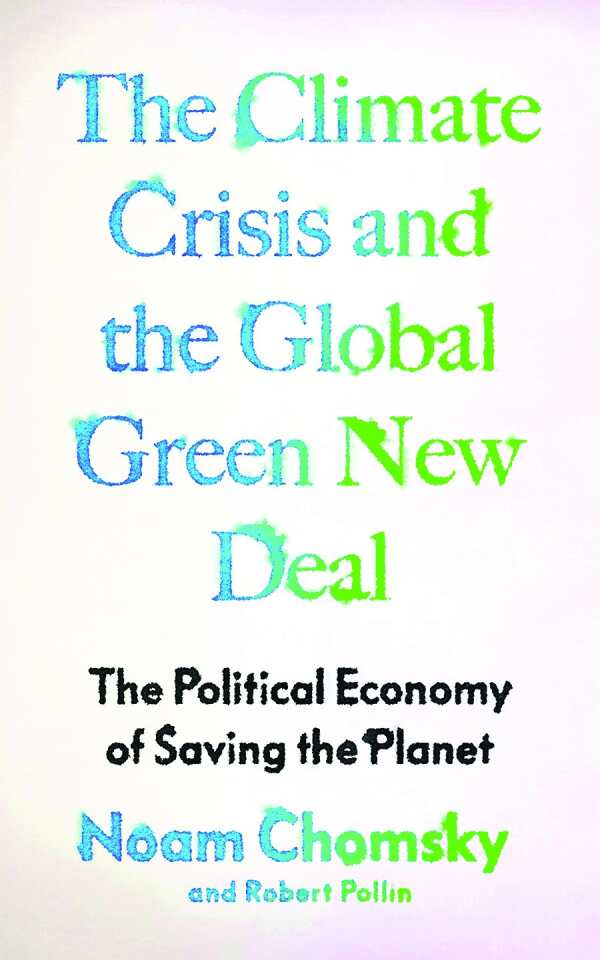The Climate Crisis and the Global Green New Deal
The Political Economy of Saving the Planet
Behind social and economic tumult lurks the threat of catastrophic climate change. Intellectual powerhouse Noam Chomsky and progressive economist Robert Pollin examine how we got here, and provide a detailed action plan for mobilizing necessary political and cultural power, in The Climate Crisis and the Global Green New Deal.
In spirited conversation, Chomsky and Pollin break down the interconnections of capitalism’s quest for eternal growth and “werewolf hunger for profits,” postwar neoliberal economic and political policies, deforestation and industrialization of developing countries, and the erosion of climate stability. In response, the Global Green New Deal calls for reductions in carbon emissions and subsidies (with stringent enforcements), coupled with public and private subsidies for full employment, renewable energy production, energy efficient retrofitting, as well as comprehensive job retraining, pension guarantees, and land reclamation to transition regions that are now dependent on fossil fuels.
The book’s economic and political verbiage is dense, though offset by Chomsky’s colorful, no-holds-barred criticism of “savage capitalism” and characterizations of selfish and dangerous political and corporate elites. Pollin’s contributions focus on how Green New Deal programs would operate and be financed, and they are more elegant and polite. However, he also delivers impassioned analyses of how a coordinated international effort needs to unfold, transforming the “current interregnum between neoliberalism and neofascism” into a more humane, environmentally conscious world.
The book is clear-eyed in its recognition of the monumental challenges to implementing such comprehensive reforms and to overcoming the political muscle of the fossil fuel industry and entrenched government officials. Buoyed by the surge of youthful activism and climate change policies among a large group of local governments, businesses, and labor unions, Chomsky and Pollin are hopeful that their book is the all-important blueprint that could take the movement through to the hard work of sustained follow-through and consensus building.
Reviewed by
Rachel Jagareski
Disclosure: This article is not an endorsement, but a review. The publisher of this book provided free copies of the book to have their book reviewed by a professional reviewer. No fee was paid by the publisher for this review. Foreword Reviews only recommends books that we love. Foreword Magazine, Inc. is disclosing this in accordance with the Federal Trade Commission’s 16 CFR, Part 255.

